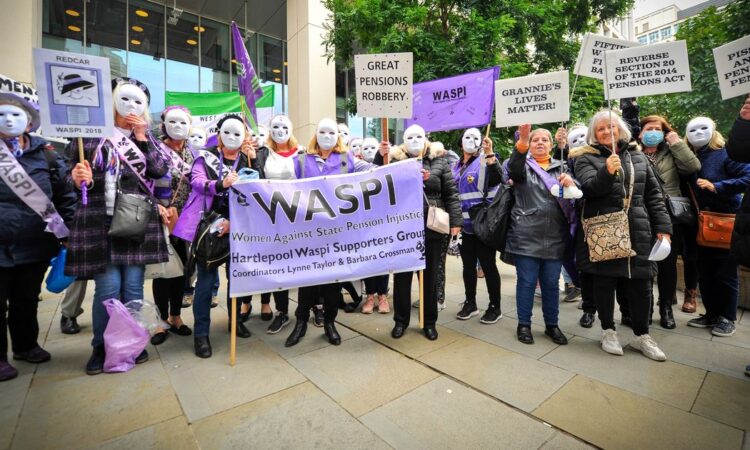
A final report will recommend to the government what level of compensation should be paid to affected women for the hardship tens of thousands have faced due to the pension age changing
A mum-of-two from Manchester says she has lost out on about £50,000 after the Department of Work and Pensions changed the state pension age.
She’s one of thousands of WASPI (Women Against State Pension Inequality) women who have seen their retirement plans plunged into chaos, after the DWP increased the state pension age from 60 to 65 in 2010, and later 66. WASPI women claim they have lost the opportunity to plan for their retirement, with some of the worst affected women only receiving a few months’ notice of a six-year-delay to their state pension.
The Parliamentary Ombudsman – the government watchdog – has been investigating the DWP’s handling of the issue for five years, with a first stage report, published two years ago, finding failings in the DWP’s communication of State Pension age changes. Sue left school at 16 and got a job in the civil service, before completing a degree and going on to become a teacher.
She was always expecting to finish work at 60 and distinctly remembers catching a bus on her 40th birthday and thinking, ‘I’ve got 20 years left.’ But a decade later, when she turned 50, she discovered that would no longer be the case. She’d heard rumours the state pension age would rise to 62, but she never imagined it would rise to 66.
At the same time, she was dealt another huge blow, after being diagnosed with breast cancer, and having to undergo chemotherapy, radiotherapy, and begin an intense course of drugs. Her ill health meant she couldn’t go on working, but still had years to go before she was able to claim the state pension, so had to dip into her teachers’ pension earlier than planned.
“I’ve had to live on my lump sum which should have been for me to enjoy. I’ve had to make a big dent in that to get me through the next few years,” she said. “I’m one of the lucky ones as well. I’m in a Facebook page with other women and some of the stories are heartbreaking. You go to your local Tesco and it’s all women my age who should be retired. If you haven’t got a company pension and they are just waiting for the state pension; some of them don’t even make it.”
Sue predicts she’s missed out of around £50,000 from having to draw her workplace pension early and has relied on her partner to support her financially for the last few years. She said: “I’d have been much better financially but it’s not just about us women. If they can do this to us they’ll do it again.”
“I’ve got other friends who are not 66 who are struggling. You think you can just carry on but once you get to the menopause it doesn’t do you any good at all. After finding out the state pension age had gone up I always planned to work longer because I did enjoy work but by the time I got to 62 the cancer drugs meant I just couldn’t do it,” Sue said.
“I had to give up my own independence and move in with my partner so that I could afford to stop working. That was a big shock as I’d always been financially independent. I wasn’t ever expecting to have to work another six years. I knew the retirement age had changed to 66 but after my cancer I had to start taking my pension early so I could go part-time.
“But then I had to stop work altogether and start drawing my teacher pension early as well so I’ve missed out on a lot. You plan your retirement and a lot of the women of my age didn’t have proper careers,” she added. “We weren’t expected to have careers. We were expected to be at home looking after the kids.
“We didn’t get proper maternity pay, we got a grant from the government. I dread to think what I paid in childcare. You were just constantly fighting to get where you wanted to be. The Parliamentary and Health Service Ombudsman’s stage two report has yet to be published, following a successful legal challenge against his original draft.
A final stage three report will then recommend to the government what level of compensation should be paid to affected women for the hardship tens of thousands have faced. But campaigners say women have waited long enough and ministers should act now.






